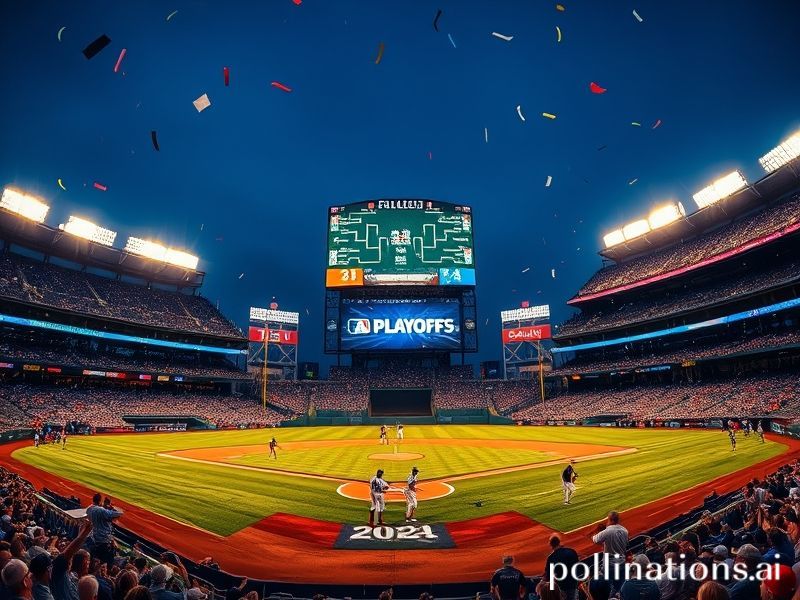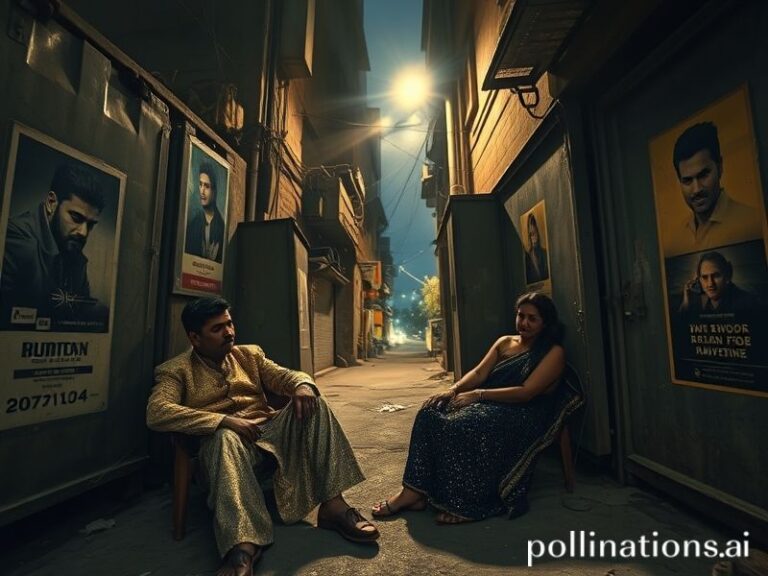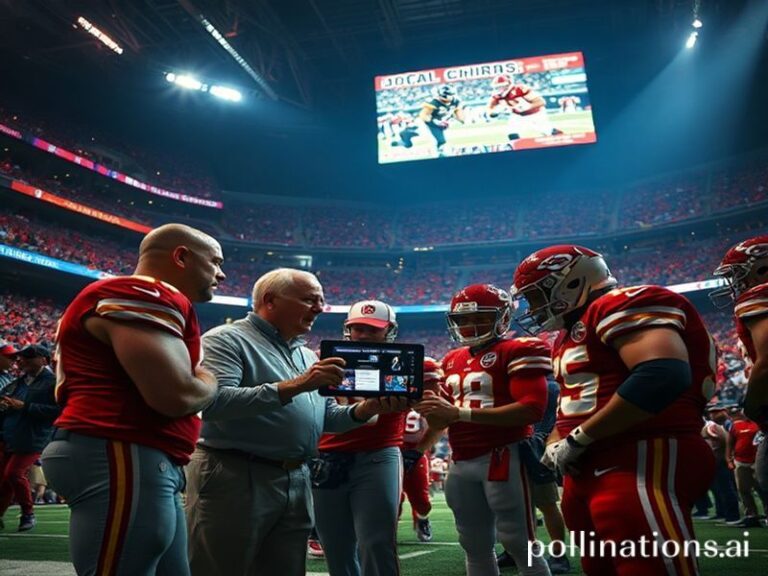Global Time Zones Tilt for MLB’s October Circus: A Playoff Schedule the World Didn’t Know It Needed
The world’s clocks now tick in anticipation of a peculiarly North-American ritual—the Major League Baseball playoff schedule—yet the tremor it sends through global supply chains, ad-industry spreadsheets, and crypto-betting syndicates is almost touching in its disproportionate grandeur. From container ships bobbing outside Los Angeles to algorithmic traders in Singapore, an entire invisible economy braces for the moment when grown men in pajamas begin hurling stitched leather under stadium klieg lights. One might call it empire by distraction: while the U.N. Security Council debates with the urgency of a dial-up modem, October baseball decides which multinational conglomerate’s thirty-second spot will haunt your YouTube pre-roll for the next fiscal quarter.
This year’s bracket, unveiled Tuesday with the sort of ceremonial gravitas usually reserved for papal conclaves or Apple keynotes, stretches from the Wild Card gauntlet on October 3 through a potential Game Seven on November 4. That date is circled in red not only in Atlanta or Houston but also in Guangzhou, where factories retool assembly lines to crank out “World Champion” T-shirts—pre-printed for both teams because even Chinese garment workers grasp the American devotion to instant commemorative merch. Meanwhile, European insomniacs set alarms for 2:00 a.m. first pitches, proving once again that continental sleep deprivation is a small sacrifice for the right to brag about cultural cosmopolitanism at Berlin cocktail parties.
The playoff schedule is more than a timetable; it is a geopolitical mood ring. When the Yankees make a deep run, the yen wobbles as Tokyo’s FX desks pause to watch Aaron Judge orbit the bases. When the Dodgers advance, South Korea’s K-pop agencies quietly rejig comeback calendars to dodge a ratings massacre. And if Toronto somehow claws its way past the Wild Card, expect a brief but violent spike in maple-syrup futures—Canada’s version of an oil shock. The World Series, should it reach seven games, will coincide with the COP29 climate summit in Baku; delegates have already requested the hotel bar install extra screens, presumably to watch the planet burn in both literal and metaphorical fashion while debating carbon offsets.
Of course, the schedule’s architecture is itself a marvel of late-capitalist engineering. Television executives have demanded staggered start times so that East Coast viewers may finish their artisanal insomnia in peace while West Coast viewers can begin their artisanal day-drinking. Streaming services have carved up international rights like vultures divvying a carcass: Amazon Prime Japan, ESPN Brasil, and a mysterious platform headquartered in Malta that claims to serve “the greater Levant.” The resulting patchwork means a fan in Lagos might watch on a 30-second delay, long enough for Twitter spoilers to ruin the suspense but short enough to maintain the illusion of simultaneity.
Ticket prices, meanwhile, have entered the realm of satire. A bleacher seat in Cleveland now costs the equivalent of Moldova’s median monthly wage, a fact the team helpfully offsets by offering a payment plan at 18% APR—because nothing says wholesome family pastime like subprime lending. Corporate suites have been gobbled up by cryptocurrency exchanges whose logos flicker across the outfield wall like ransom notes. Somewhere, a hedge-fund quant is calculating the correlation between slider velocity and Dogecoin volatility; somewhere else, a Dominican shortstop wonders if his bonus will be paid in actual dollars or an NFT of a dollar.
And yet, amid the mercenary absurdity, there remains a stubborn flicker of humanity. In refugee camps outside Amman, boys mimic Mike Trout’s swing with broom handles. In a Havana alley, neighbors rig a pirate satellite to catch grainy playoff feeds, communism be damned. Even the most jaded expat, nursing an overpriced lager in a London pub at 3:12 a.m., feels something suspiciously like hope when a 97-mph fastball pops the catcher’s mitt. It’s hope packaged, monetized, and sent through a dozen intermediary holding companies, but hope nonetheless—proof that the species can still synchronize its heartbeats, if only for nine innings at a time.
So mark your calendars, wherever you are. The MLB playoff schedule is not merely a list of ballgames; it is the operating system for a fleeting global truce. For three weeks we agree to argue about bullpen usage instead of drone strikes, to fret over exit velocity rather than exit visas. Then the final out is recorded, the stadium lights dim, and the old chaos reboots—on time, like clockwork.







